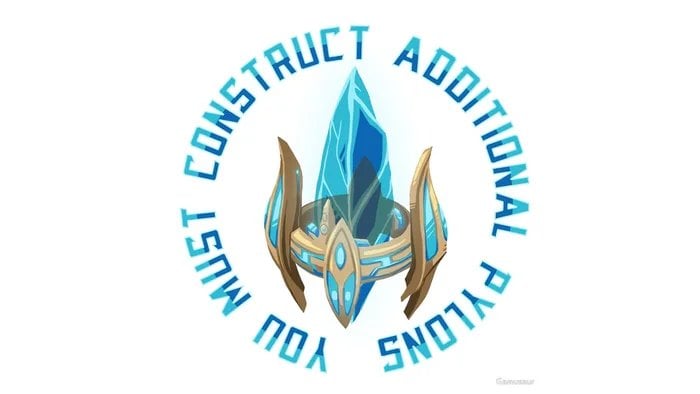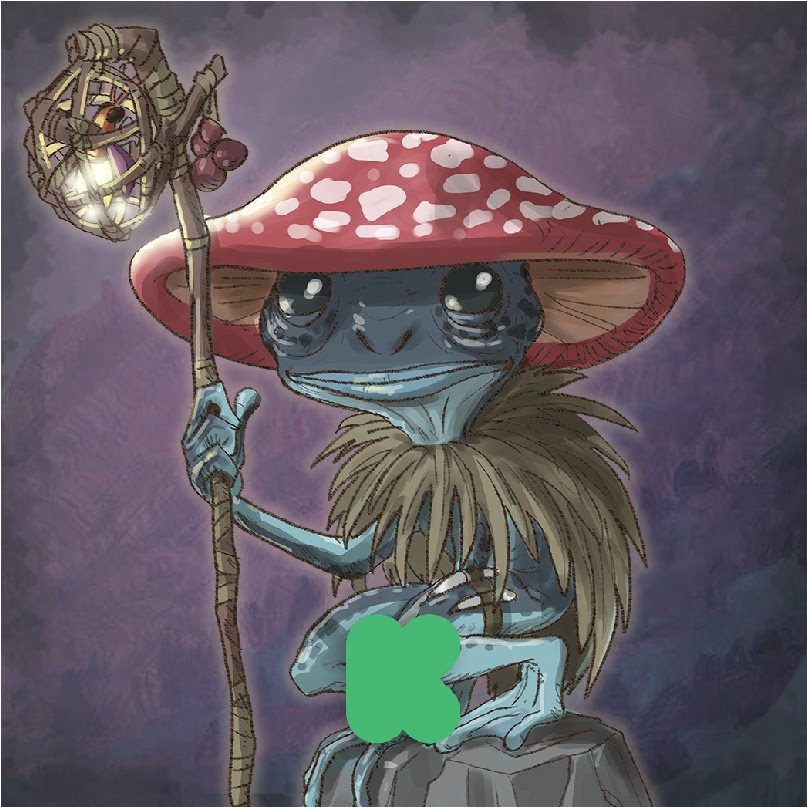Hello everyone I am an avid practitioners of martial arts. Started with Judo and Jiu Jitsu. Then my health and phisical condition degraded due to external causes. I switched to Aikido for three years and now Tai chi chuan, which I am now strongly committing to.
Aside from obvious positive effects (balance and agility) I wonder what you all think about inner martial arts.
I tend to ingest as little taoist folklore as I can, not because I think it’s not interesting, but I want to avoid the exotic sounding mysticism tailored to impress westerners as a kind of new age marketing strategy. Fortunately, my teacher is a medical doctor working in the field of work related injuries.
I know I love Tai Chi Chuan and I truly mean to get better at it, but I can’t ignore all the… weird stuff connected to it (no, Mr. Grand Master, I refuse to think that you single handedly pushed 10 people by the power of chi mastery). At the same time, I’ve been impressed by how, sometimes, finding adequate balance can make you able to sustain a strong push without even making active use of muscular strength.
So Il just wondering how you feel about this (or the other) inner martial art.
For me, it’s a demanding and rewarding practice, full of great health and self discipline benefits and a few truly impressive perks, but with a…weird decorum I can’t begin to understand.
I know absolutely nothing about any martial arts, but my two cents is that if it beings you benefit and it’s not hurting anybody then it go for it.
Oh I certainly am! But after trying to read a few studies about inner arts measurable effect, I’m left with more questions than answer, so I wanted to ask Lemmy’s collective knowledge and impressions.
It’s good as a form of physical meditation. Supposedly some speculate taichi may have been a training art for actual practical grappling arts like shuai jiao.
Yes, phisical meditation is nice way to put it (plus agility training on the side, which is never a bad thing!)
drop a martial art if it is failing to harm anyone.
Noncombative martial arts like Tai Chi derived from the need to hone skills like balance and flexibility separately from combat. Even though they contribute to better fighting they have personal benefits for non-fighters as well. Especially as people age. You could also learn the more harmful martial arts if that’s your goal, but you’ll find the skills learned in the noncombative class will help you win with less harm to your own body.
May I suggest that tai chi is very much a combative fighting style that simply has a larger audience with two chi for health. All of the forms can be sped up and effectively used as a martial art.
This is not exactly the case. “It can be used for combat” does not necessarily mean “it’s the best/ideal/ready for combat”. I would stress readily that if you are in the west, Judo and or Brazilian Jiu Jitsu are good for grappling arts. For striking arts Muay Thai is great! Some alternatives are sanda or dutch kickboxing. Though I’m not too sure on availability of Sanda schools in the west. If you really want to go the Chinese martial arts route, Choy Li Fut is a good style, and has supposedly gone toe to toe with Muay Thai on a few occasions.
Tai chi is playing mario cart and drifting but at 1/10 speed.
I suspect it depends on the school. Also I think it depends on the student’s needs and intentions. Tai chi can be very effective against many competing styles.
This reminds me of my struggle with yoga.
Stretching: good. Magic energy: sigh…
I agree with you about the “weird stuff”. I teach Tai Chi and I’m very careful about the words I use, especially when it comes to describing mechanical forces. I’ll often mention that I don’t mean some notion of “life force” but rather the physical Newtonian force that your body is subject to while performing the movements.
I find Tai Chi to be deceptively complicated with deep physical and psychological components. I have a hard time articulating what it is to others since it’s not really a martial art, and it’s not really meditation, and it’s not just a bunch of movements or calisthenics. But it does have very real effects and I love it!
It sounds like your experience is quite similar to mine and I’m happy you found a good teacher and are enjoying the practice! 😀
I am and I’m super glad to have read your message! Thanks for sharing!
I’m really out of practice, but I remember that onion fondly. My teacher would have us write our fundamental principles down and then do it again a year later and compare.
I tried Aikido for a while and did some Qui Gong as well. I see your point about the BS floating around, but the physical and also mental benefits are undeniable. It may vary from person to person, the same way some people can’t meditate, some won’t get anything from these types of activities.
Eh, I find it easy to ignore the woowoo bullshit. Always have.
That being said, the benefits are there. It’s a form of meditation, and exercise, all rolled into one. That’s always a good thing.
Now, I enjoy the Taoist and Buddhist stuff. On paper, that’s the religions I give when a quick and simple answer is needed. The Buddhist side of things actually is as close to religion as I get nowadays, and the Taoist side of things is an interesting way of looking at the universe. But neither approaches what you’d call Belief. It’s more that they fit well enough as an approximation of the way I think and feel about existence.
Tbh, it helps in breaking loose of assumptions built up from living in the western world, the same as western ways of thinking would help break free of assumptions built up from eastern ways of thinking. And that’s what matters to me, keeping my assumptions from keeping me from thinking and learning.
That’s a nice perspective. Whenever I have some free time, I’d like to dive into taoist vision a bit below the surface level. Some assumptions of Buddhism I can’t relate to. Maybe this one will be less directly opposing my deep beliefs. Anyway, it’s always interesting to learn, even if I end up disagreeing.
I like them. Make sure to put all of your XP into CHI.
I’ve trained Wu style for a while and there wasn’t any mysticism in the school I was in. We also did a lot of application and sparring, including sparring with other martial arts schools. I think the core principles of the principles of the art are sound, and it can work as an effective fighting style.
That said, I find it really depends on how it is taught. A lot of schools just focus on doing the forms, and they don’t bother with application. It’s fine if you’re doing it to develop body awareness, balance, and so on. However, I don’t think it’s possible to learn to apply a fighting style without actually doing sparring.
Stories about masters single handedly pushing 10 people using the power of chi are just tall tales in my experience. You can get a lot of power by learning to get the most out of body mechanics, but at the end of the day there’s no magic and it’s just physics.
To me it’s just a passion some ppl have. I used to be more into it (never did it), but as with every passion, you can get blinded by the flashiness of the people who wanna sell you a specific technique or way to do something.
I think you are right, one can get trapped very easily in the pitfalls of the superhuman, but the actual benefits are rooted in the basic.
Other examples: there’s a lot of benefits to general fitness exercises, but the fitness bros will sell you their one and only way to get extremely muscular (which most people don’t even start out striving for). Or games, where people push you to be the very best, although the actual benefit is in having fun and keeping your brain sharp. Or creative hobbies, where a lot of people strive for the spotlight, but the actual benefit is when you do it for yourself and do what you want, regardless of what other people think.
It’s a hard balance but I guess that’s just life.
There sure is a lot of flashy myths and fantasies in this branch of martial arts. Sometimes, my fellow practitioners truly believe in Chi as a mystical force allowing one to get superhuman abilities, which is a bit frightening tbh. I’m not counting daoism among said fantasies and myth. I’m still ignorant about its meaning. So yes, I guess you’re right.
The thing with meditation and repetitive physical practicing can easily have something like chi that descibes the feeling of getting thigs right in a way that some people take literally magic. Like how focusing on moving something can feel effortless because practice has made it a whole body motion. Or how thinking about punching past something makes it easier to hit it harder because your brain is less likely to subconciously pull back on impact.
The mental part of martial arts is like medidation. There are real world benefits, both mental and physical, and having a long history that intertwines mysticism means a lot of people are going to start to believe their own hype.
That was actually a very useful (for me) way of explaining it. Thank you.
But this, I can’t explain : https://youtu.be/4yv34VZGeqs. Do people really believe in this? Can suggestion be that impressively strong?
That guy is my teacher’s master and he deeply respects him as an incredible martial artist. And my teacher and several students seem to follow a 0 bs policy.
But… how can not one question this… kinda grotesque scene?
The human mind impresses me everyday.
That video!! Yeah, I don’t believe it either. Sort of reminds me of doing Kung Fu as a kid. We’d do public demonstrations and would sometimes ham it up a bit for the audience. I wonder if that’s what’s going on.
Have you practiced push hands? There’s a neat effect I can only describe as sort of being able to bounce off the other person. You can get some decent air with it! I also wonder if there’s a bit of that going on with a lot of exaggeration.
We will start practicing push hands this year! We’ve just learned the moves individually. It’ll be interesting to practice then. Thank you!
Hahahahaha how can you take anyone like that serious? People really are amazing and considering how many vote for Trump for probably the same basic reason I should absolutely not laugh about this. It is dead serious having to deal with this kind of human behavior.
That’s the thing. That person may also truly be one of the best practitioners of the discipline. I’ve hypothesized maybe there’s two sides to his activity : private teaching and public… shows?
I do a little Qi Gong routine in the morning. It’s very pleasant and I don’t need a yoga mat.
I practice “internal” and “external” kung fu and first things first… All real kung fu is both. If your Shifu is teaching both the internal and external aspects of the art then you are getting the full experience. Any martial art was developed for fighting, however there can be a very fulfilling experience when you connect the mind and body during training and execution. It sounds like your teacher has you on a good path.
What are your thoughts on inner martial arts?
I’ll let my fists do the thinking on this.
As I would have a few years ago. But I’m an old man now and leave it to younger people. Of course, I’m quite happy to still have long earned reflexes from my practice of external arts, in case I need them one day…
This might be intersting to you – he talks about the difference between philosophical Daoism (like the Daodejing) and religious Daoism (the “weird decorum” you mention). Also this
Ooh. Thank you very much kind stranger.
I’ve done some karate, wu shu(gong/Kung fu), and Tai chi. Thankfully, my instructors never got into the BS of chi or Feng shui.
I do think doing the physical work without accompanying mental work is missing out on some stuff though. Your physical status goes along with mental status and vice versa. Whether you choose to perceive that as chi, chakras, or just plain mental control(what I choose) is up to you.
Yes, my instructors sometimes uses “chi” but quickly autocorrects himself “let’s say breathing”. I think the mental work taichi implies for me is striving for “perfection” in the moves, while remaining calm.
Thanks for sharing!
All of the fake martial arts (from no-touch knockouts and kayfabe wrestling) have given me a bad impression of martial arts in general. If you’re not mystifying your arts or trying to pass them off as something they’re not to impressionable and vulnerable people, hey you’re good. But I’m still internally lumping them all together as scams in my head.
Just watch out to not get into Falun Gong or something similar.
Read some books on taoism













